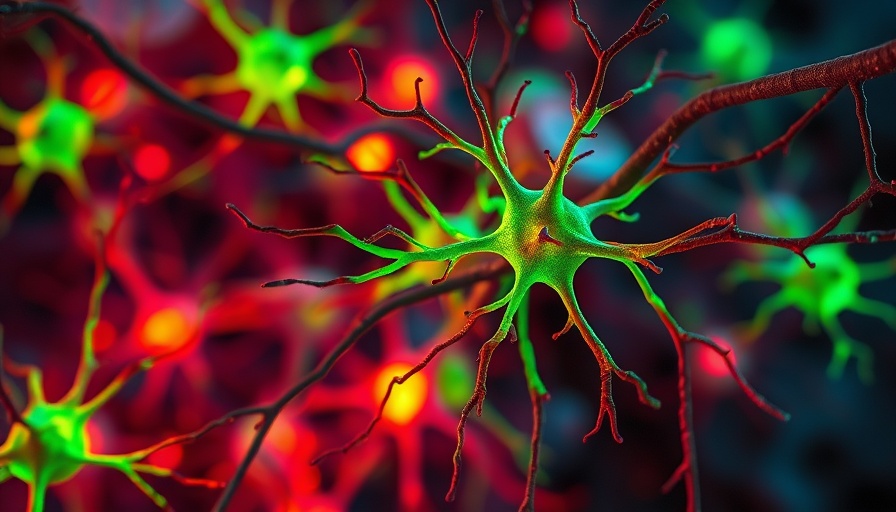
Understanding the Brain's Resilience: How Neural Networks Reorganize
Recent research conducted by teams from the University Medical Center Mainz, the Frankfurt Institute for Advanced Studies (FIAS), and the Hebrew University reveals profound insights into how the brain compensates for the loss of neurons. Published in Nature Neuroscience, the study highlights the brain's remarkable ability to reorganize its neuronal networks, particularly in the cerebral cortex, to maintain functionalities even amidst neural degeneration.
What This Means for Health and Aging
The brain’s ability to compensate for neuronal loss is particularly significant as we age. Various factors, including age-related processes, neurodegenerative diseases such as Alzheimer’s and Parkinson's, and environmental toxins, contribute to neuron deterioration. Understanding this reorganization not only provides a fresh perspective on the brain's durability but could also pave the way for new therapeutic approaches in tackling neurodegenerative conditions.
Exploring Neuroplasticity in Action
Neuroplasticity refers to the brain's ability to adapt in response to experiences, including damage. By employing animal models specifically targeting the auditory cortex, the research team illustrated that the brain could still process complex activities, like sound perception, even after substantial neuronal loss. This concept aligns with previous findings in behavioral psychology, where adaptability can lead to enhanced skills and functions, further emphasizing the importance of a stimulating environment for brain health.
Bridging Health and Wellness to Cognitive Longevity
In light of the findings, there are actionable steps individuals can take to support their brain health as they age. Incorporating lifestyle changes such as regular exercise, a balanced diet rich in antioxidants, social engagement, and mental exercises can promote cognitive resilience. The growing field of health and wellness highlights how nutritional supplements and natural therapies can further facilitate cognitive longevity, making it imperative for communities to invest in health education.
Insights from the Community Health Perspective
Considering the implications of this research, community health and wellness programs can play a vital role. Engaging workshops and informational sessions on maintaining cognitive health could empower individuals with the knowledge to make informed lifestyle choices. For instance, close community ties could enhance the mental well-being of seniors, a demographic particularly vulnerable to cognitive decline.
Future Directions for Research and Practice
The potential avenues for future research are plentiful. Understanding how different environments and experiences influence neuroplasticity can inform not just individual health strategies but also public health policies. By recognizing the interconnectedness of mental and physical health, we can create comprehensive approaches that address aging populations and foster healthier communities. The importance of continued investment in neuroscience research cannot be overstated, particularly as more professionals understand the long-term benefits that vitality and wellness present.
Conclusion: Take Charge of Your Cognitive Future
As the science underlying the brain’s resilience evolves, so too must our strategies for health and wellness. From adopting a healthy lifestyle to participating in community programs focusing on mental health, every proactive step offers the potential to offset cognitive decline.
Explore the local health and wellness centers in your community and consider attending programs that focus on promoting longevity and cognitive health. It’s never too late to invest in the vitality of both your mind and body.
 Add Row
Add Row  Add
Add 




 Add Row
Add Row  Add
Add 


Write A Comment